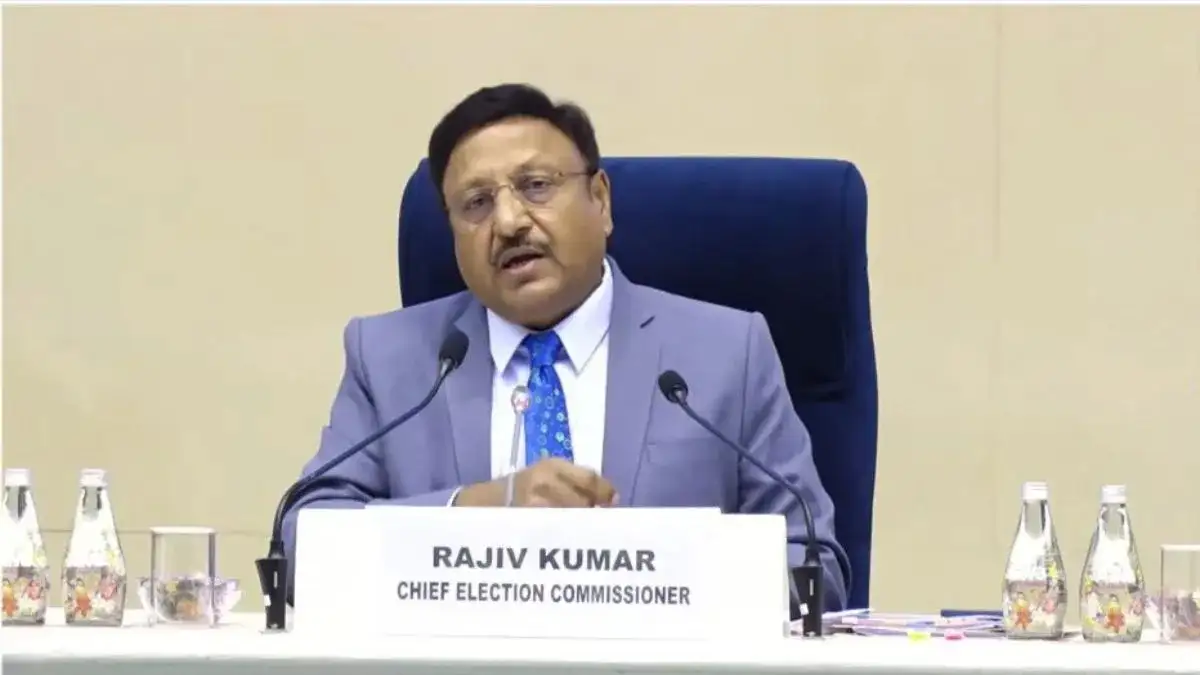
Prime Minister Narendra Modi and LoP Rahul Gandhi will meet on Monday regarding the appointment of the new Chief Election Commissioner (CEC) as incumbent Rajiv Kumar is set to retire. This is going to be the first-ever appointment of the CEC, based on the Chief Election Commissioner and Other Election Commissioners (Appointment, Conditions of Service, and Term of Office) Act, 2023, which was enacted after getting passed by the Parliament.
However, another tussle is being going on wherein, the Supreme Court has agreed to hear a petition challenging the latest law. The apex court will hear the case challenging the validity of the law on February 19, a day after Rajiv Kumar retires.
How CEC was appointed before new law?
At the outset, it must be noted that till the 2023 act was passed, India didn’t have any mechanism or set procedure for the appointment of CEC and other ECs. Article 324 leaves the appointment at the President’s discretion based on the act of Parliament.
Because of the absence of a substantive act, the President used to appoint the officials on the advice of the Executive body, i.e., the PM and Council of Ministers.
Supreme Court intervenes
In March 2023, the Supreme Court’s five-judge Constitutional bench led by Justice KM Joseph, while examining the appointments of the CEC and ECs, noted that appointment shouldn’t be done solely on the advice of the Executives and that the appointment process should be independent.
The SC mandated a selection process where the President should appoint CECs and ECs on the advice of the Selection Committee consisting, of the PM, Lok Sabha LoP and CJI. The process was to be followed until Parliament passed a new law.
CEC/EC Act 2023
Subsequently, the Parliament passed Chief Election Commissioner and Other Election Commissioners (Appointment, Conditions of Service, and Term of Office) Act, 2023. It was introduced and passed in Rajya Sabha first and ten by Lok Sabha.
As per the act, the Election Commission has to be appointed by the President on the advice of the Selection Committee. However, the act omitted the CJI role and added a Cabinet Minister to it.
The Prime Minister, Cabinet Minister (nominated by the PM), and Leader of Opposition in Lok Sabha (or leader of the single largest opposition party) have to decide on names suggested by the Search Committee headed by the Cabinet Secretary. However, the Selection Committee is not bound to only those names.
The uproar afterwards
The act was criticised by many for excluding the Chief Justice of India. However, the government has argued that the Judiciary can’t have a role in the appointments of the Executive. In January 2024, two petitions, by MP Mahila Congress general secretary Jaya Thakur and Association for Democratic Reforms were filled in the Supreme Court challenging the validity of the act stating that it contravenes the Constitutional Bench judgement.
The act was implemented in March 2024, soon after enactment when two ECs- Gyanesh Kumar and Sukhbir Singh Sandhu. It sparked criticism after Adhir Ranjan Chowdhury, the LoP at that time and a member of the panel claimed that he didn’t get adequate time to assess the candidates. This created further contestation.
Later, a Division Bench comprising Justice Sanjiv Khanna Dipankar Datta and A.G. Masih re-listed the case. After successive dates, on February 19, the court will hear the case again and will decide the fate of the act.


